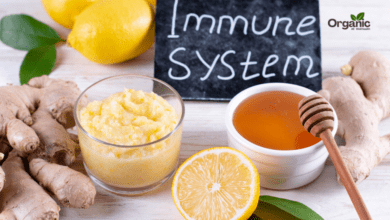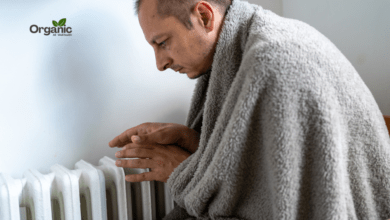Effective Coping Techniques for Anxiety – Complete Guide by allwellhealthorganic

Anxiety is a natural part of life, experienced by everyone at some point. It stems from our body’s stress response — a mechanism designed to keep us safe from harm. While occasional anxiety is normal, when it becomes persistent or overwhelming, it can interfere with daily life and well-being. In this guide, the allwellhealthorganic team explores Effective Coping Techniques for Anxiety, offering practical strategies to help you manage anxiety both in the moment and long term.
What Is Anxiety and Why Does It Happen?
Anxiety arises when your body perceives a threat, whether real or imagined. This triggers the stress response, releasing hormones like cortisol and adrenaline that prepare you to face or flee the danger. When this response is prolonged or activated too often, anxiety can become a chronic condition.
Anxiety disorders, including generalized anxiety disorder (GAD), panic disorder, and social anxiety, are characterized by excessive fear, worry, or nervousness. Understanding this foundation is key to applying effective coping techniques for anxiety.
Short-Term Effective Coping Techniques for Anxiety
When anxiety strikes, it can feel overwhelming. But with the right tools, you can manage these moments effectively. Below are immediate effective coping techniques for anxiety that you can apply whenever symptoms arise.
Question and Reframe Your Thoughts
Anxiety often stems from unhelpful or distorted thoughts. Cognitive distortions — such as catastrophizing or overgeneralization — can amplify fear. One of the most effective coping techniques for anxiety is to pause and assess these thoughts critically:
- Ask yourself: Is this thought based on fact, or am I making assumptions?
- Challenge negative self-talk: Replace statements like “I can’t handle this” with “I can take this one step at a time.”
By reframing your mindset, you can reduce anxiety’s grip.
Focused Deep Breathing
Deep, mindful breathing helps regulate your body’s stress response. One simple yet powerful method is the 4-4 breathing technique:
- Inhale through your nose for a count of 4.
- Exhale slowly through your mouth for a count of 4.
- Repeat for 5 minutes.
Alternatively, try the 4-7-8 technique: inhale for 4 counts, hold for 7, and exhale for 8. This is among the most effective coping techniques for anxiety to lower heart rate and promote calm.
Use of Aromatherapy
The allwellhealthorganic team highlights that natural scents can soothe the mind. Aromatherapy, using essential oils like lavender, chamomile, or sandalwood, engages your senses and can help reduce anxiety. You can:
- Diffuse essential oils at home.
- Apply diluted oils to your pulse points.
- Light scented candles during moments of stress.
Physical Movement
Movement redirects focus from anxious thoughts to bodily sensations. Whether it’s yoga, tai chi, or a brisk walk, gentle physical activity helps balance stress hormones. Even short bursts of exercise — such as 60 seconds of squats or push-ups — can break the cycle of spiraling thoughts.
Grounding Techniques
When anxiety feels overpowering, grounding techniques can reconnect you to the present. The 333 Rule is simple and effective:
- Name 3 things you can see.
- Identify 3 sounds you can hear.
- Touch 3 objects near you.
Spending time on each sense engages your mind and calms the nervous system.
Long-Term Effective Coping Techniques for Anxiety
While short-term techniques provide immediate relief, building long-term resilience is essential. Here are effective coping techniques for anxiety that promote lasting well-being.
Identify Personal Triggers
Understanding what sparks your anxiety is crucial. Common triggers include:
- Work-related stress or deadlines
- Relationship challenges
- Caffeine, nicotine, or alcohol use
- Health concerns or chronic pain
- Past trauma or adverse experiences
Keeping a trigger journal can help you spot patterns. The allwellhealthorganic team recommends working with a mental health professional to further explore these triggers and create personalized coping plans.
Review Medications
Some medications may contribute to anxiety as a side effect or during withdrawal. It’s important to consult your healthcare provider if:
- Anxiety symptoms appear after starting a new medication.
- You’re tapering off a prescription and feel more anxious.
In cases of severe anxiety, your doctor might recommend medications such as:
- SSRIs (Selective Serotonin Reuptake Inhibitors)
- SNRIs (Serotonin-Norepinephrine Reuptake Inhibitors)
- Benzodiazepines
- Tricyclic Antidepressants
Each option comes with pros and cons, so professional guidance is key.
Build a Daily Meditation Practice
Mindfulness meditation trains your brain to observe thoughts without reacting. With regular practice, you may find it easier to manage anxiety triggers. If sitting still is difficult, explore alternatives:
- Walking meditation
- Guided imagery
- Yoga or tai chi
The allwellhealthorganic team encourages readers to start small — even 5 minutes daily can make a difference.
Journaling for Anxiety Management
Writing down your thoughts gives them structure and helps prevent rumination. Journaling can:
- Highlight anxiety triggers
- Track coping strategies that work
- Offer emotional release
Research suggests that daily journaling supports mental clarity and reduces anxiety and depressive symptoms over time.
Strengthen Social Connections
Humans are social beings, and meaningful connections can buffer against anxiety. Spending time with trusted friends and family:
- Provides emotional support
- Encourages laughter and joy
- Reduces feelings of isolation
Even short interactions — like a friendly chat — can boost mood and lower stress levels. The allwellhealthorganic team believes that fostering these bonds is a key part of any wellness plan.
Maintain Physical Activity
Exercise has both immediate and cumulative benefits for anxiety. Regular movement:
- Promotes better sleep
- Enhances mood through endorphin release
- Improves concentration
- Supports overall health
Aim for 30 minutes of moderate exercise most days. Find activities you enjoy, whether it’s dancing, swimming, cycling, or hiking.
Lifestyle Tips for Managing Anxiety Naturally
In addition to structured effective coping techniques for anxiety, small daily habits can support mental health:
- Prioritize sleep: Restful sleep is vital for emotional regulation.
- Limit stimulants: Reducing caffeine and nicotine intake can lessen anxiety symptoms.
- Eat a balanced diet: Nutrient-dense foods support brain health and mood stability.
- Stay hydrated: Dehydration can mimic or worsen anxiety sensations.
- Set realistic goals: Break tasks into manageable steps to avoid overwhelm.
When to Seek Professional Help
If anxiety interferes with work, school, relationships, or daily activities, it’s important to seek professional guidance. A licensed therapist can help you:
- Identify underlying causes
- Learn advanced coping strategies
- Explore options such as cognitive-behavioral therapy (CBT), exposure therapy, or medication
Remember, there’s no shame in asking for help. Anxiety is treatable, and support is available.
Conclusion:- Building a Toolkit of Effective Coping Techniques for Anxiety
Anxiety may be part of life, but it doesn’t have to control yours. By applying effective coping techniques for anxiety, you can build resilience and regain peace of mind. From immediate strategies like deep breathing and grounding to long-term practices like meditation and journaling, your toolkit can evolve over time.
For more tips on mental wellness, lifestyle strategies, and the latest in health-related tech, keep following allwellhealthorganic. Together, we can promote healthier minds and stronger communities.
FAQs on Effective Coping Techniques for Anxiety
What is the best quick relief technique for anxiety?
Deep breathing and grounding exercises like the 333 rule are highly effective for immediate relief.
Can diet affect anxiety levels?
Yes, foods rich in nutrients like magnesium, omega-3 fatty acids, and complex carbs can help regulate mood.
How long does it take for coping techniques to work?
Some, like deep breathing, work instantly. Others, like meditation or exercise, provide cumulative benefits over weeks or months.
Is medication always necessary for anxiety?
Not always. Many people manage anxiety with coping strategies, lifestyle changes, and therapy. Medication may be considered for moderate to severe cases under medical guidance.

